Islamabad Temporarily Halts Iran-Pakistan Gas Pipeline
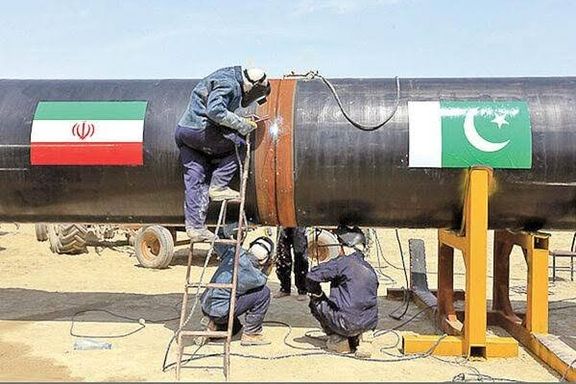
Pakistan has put a temporary hold on the ambitious multi-billion-dollar gas pipeline project to import energy from Iran.

Pakistan has put a temporary hold on the ambitious multi-billion-dollar gas pipeline project to import energy from Iran.
According to media reports, the decision appears to be influenced by pressure from the United States, which has imposed sanctions against Iran due to concerns over its nuclear program.
Initially envisioned as a joint endeavor between India, Pakistan and Iran, the gas pipeline project later evolved into a bilateral initiative between Pakistan and Iran after India's withdrawal. However, the implementation of the project has faced setbacks due to the stringent sanctions imposed by the US on Iran.
Citing external factors beyond Islamabad's control, Pakistan issued a notice of 'Force Majeure and Excusing Event' to Iran, thereby suspending its contractual obligations related to the Iran-Pakistan (IP) gas pipeline project. The Dawn newspaper reported that Pakistan conveyed its inability to advance the project as long as US sanctions against Iran remained in effect, or until a signal was received from Washington permitting the project's resumption.
Musadik Malik. Pakistan’s Minister of State for Petroleum, stated, "Pakistan has issued a Force Majeure and Excusing Event notice to Iran under the Gas Sales and Purchase Agreement (GSPA), which resultantly suspends Pakistan's obligations under the GSPA."
Meanwhile, last week during a visit to Pakistan, Iranian Foreign Minister Hossein Amir Abdollahian stressed the project's importance in focusing on regional connectivity, energy cooperation, and enhancing economic and investment partnerships between both countries.
While Tehran continues with the completion of its 1,150-kilometer pipeline segment, Pakistan's section has encountered several setbacks. The project, initiated in 2013 with a USD 7.5 billion estimate, faced a delay as international sanctions hindered Pakistan's commitment to finish by January 2015.
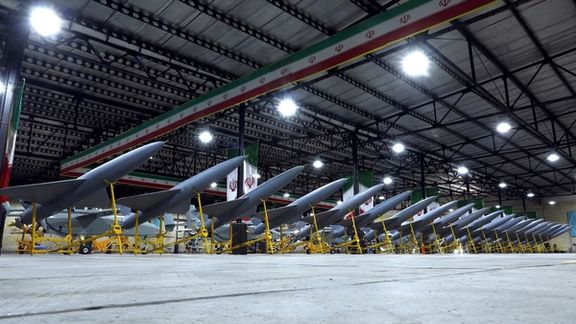
Britain and Canada have announced new Iran-related sanctions targeting individuals and entities threatening international peace and those involved in arms supply to Russia.
Britain on Tuesday imposed sanctions on an Iranian drone maker and a range of other foreign businesses, accusing them of supplying Russian forces with weapons and components for use against Ukraine. Canada targeted seven people whom Ottawa accused of being a menace to international security or involved in activities that constitute gross and systemic violations of human rights in Iran.
According to a statement from the Canadian foreign ministry, the sanctioned individuals include senior Iranian officials involved in entities that supply materials to Iran's national Law Enforcement Command or individuals who hold senior positions in state-directed firms that produce lethal combat drones used by Iran-backed forces “to destabilize the region” or that are exported to Russia.
Canada’s package of sanctions – its 13th against the regime since October 2022 – included Ali-Akbar Ahmadian, the new Secretary of Iran’s Supreme National Security Council; Brigadier General Abdolkarim Bani-Tarafi, the Chairman of the Iran Aviation Industry Organization; as well as three board members of the company Reza Khaki, Majid Reza Niyazi-Angili, and Vali Arlanizadeh. Fatemeh Haghshenas and Masoumeh Teymouri, board members of Imen Sanat Zaman Fara -- a company that manufactures equipment for security forces – were also sanctioned in this round.
“Today’s sanctions send a clear message to the Iranian regime that Canada will not tolerate its gross and systematic violations of human rights and its ongoing grave breach of international peace and security. We will continue to use all the tools at our disposal to respond to Iran’s egregious actions,” said Canadian Foreign Minister Mélanie Joly.
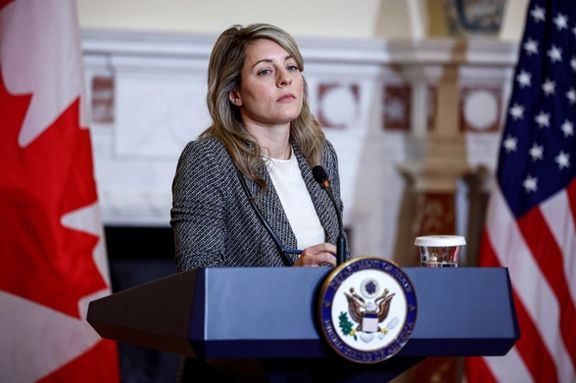
London’s punitive measures focused more on Moscow’s access to foreign military equipment, blacklisting 25 individuals and businesses in Iran, Turkey, Belarus, Slovakia, Switzerland and the United Arab Emirates, as well as Russia supporting the war in Ukraine.
Iranian drone maker Paravar Pars and seven of its executives -- already under US sanctions since February – who are involved in the research, development and production of UAVs for the Islamic Revolutionary Guard Corps (IRGC) as well as two Turkey-based exporters of microelectronics, Azu International and Turkik Union, were among those targeted by Britain.
A statement by British Foreign Minister James Cleverly described Paravar Pars as “a key regime-linked UAV manufacturer” and accused the Islamic Republic of being “responsible for supplying Russia with the kamikaze drones used to bombard Ukraine.”
Cleverly said on Tuesday, “We are also taking further action to tackle Iran and Belarus’ support for Russia’s military,” highlighting that “The UK has previously imposed sanctions on Belarus for continuing to actively facilitate Russia’s invasion of Ukraine and has called out Iran’s destabilizing role in global security, including through sanctions against Iranian suppliers of the Unmanned Aerial Vehicles (UAVs) used by Russia to target Ukrainian civilians.”
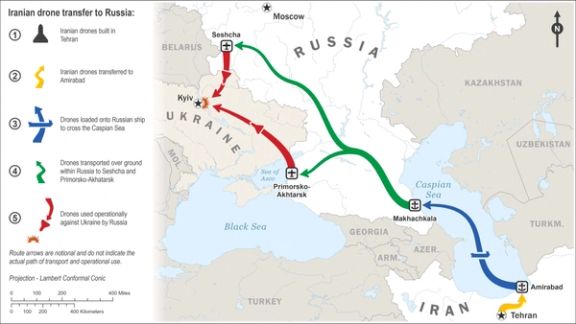
“There is nowhere for those sustaining Russia’s military machine to hide," he underlined.
The British government has sanctioned over 1,600 individuals and entities since the start of the Russian invasion of Ukraine, but according to Cleverly, the latest round of sanctions marked its biggest ever action on military suppliers in third countries.
"Today's landmark sanctions will further diminish Russia’s arsenal and close the net on supply chains propping up (President) Putin's now struggling defense industry," British foreign minister James Cleverly said.
Britain, the US, the European Union and several other countries have imposed a range of sanctions since last February to punish Russia for its invasion of Ukraine, which Moscow calls a "special military operation".
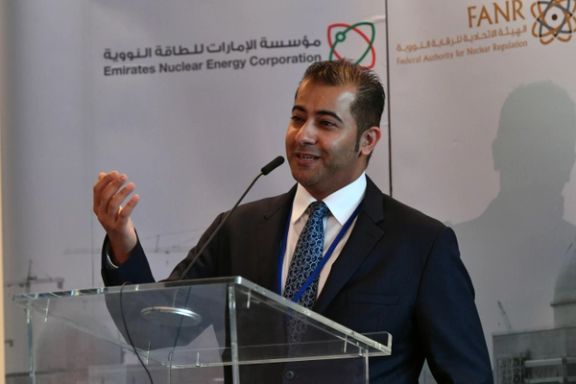
In a rare statement, the United Arab Emirates has voiced "profound concern" regarding Iran's nuclear program and called on Tehran to cooperate fully with United Nations inspectors.
Hamad Alkaabi, the UAE's permanent representative to the UN's International Atomic Energy Agency (IAEA), stressed that Iran's uranium enrichment activities lacked "realistic peaceful uses."
The UAE's expression of concern regarding Iran's nuclear activities is particularly significant given its recent efforts to improve relations with Tehran, including the exchange of ambassadors and an official invitation for the UAE's head of state to visit Iran.
Addressing a non-proliferation meeting in Vienna, Alkaabi emphasized the importance of Iran addressing the concerns raised by the IAEA. He urged Iran to take concrete steps to "build confidence in the peaceful intent" of its nuclear activities. The call comes against the backdrop of Iran's enrichment and stockpiling of uranium, as well as its installation of new centrifuges, following the US withdrawal from the 2015 Joint Comprehensive Plan of Action (JCPOA).
Alkaabi pointed out that Iran's uranium enrichment to levels as high as 60 percent, well above the 3.67 percent cap stipulated by the JCPOA, is a cause for alarm and highlighted that such activities were not consistent with the agreement, thus raising serious concerns for the UAE, which is just a matter of miles away from Iran.
Adding to the apprehensions, Norway has also drawn attention to what it terms "noticeably heightened Iranian nuclear expertise." Western diplomats have cautioned that these advancements could have enduring consequences, potentially being irreversible even in the event of a restored agreement.
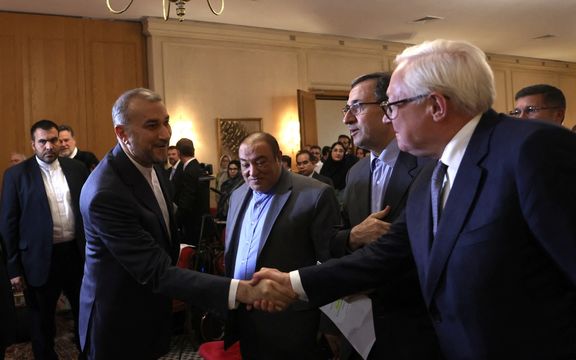
Russia on Tuesday aligned itself with its ally Iran in rejecting Western attempts to maintain sanctions on Iran despite the collapse of the 2015 JCPOA nuclear deal.
After a meeting between respective deputy foreign ministers in Tehran, Russia's foreign ministry said Moscow and Tehran were unanimous in believing that the failure to implement the deal stemmed from the "erroneous policy of 'maximum pressure' pursued by the United States and those who think similarly".
Russia is one of the participants in the Joint Comprehensive Plan of Action (JCPOA), the accord signed between world powers and Iran to restrict Tehran’s controversial nuclear program, especially limiting its uranium enrichment.
Then-US president Donald Trump quit the deal in 2018, imposing economic sanctions, and Iran's relations with the West have been deteriorating ever since, as it has accelerated its nuclear program. Tehran has been enriching uranium to 60-percent purity since 2021 and has accumulated enough fissile material for at least two nuclear weapons.
But Russia, which signed the deal alongside the US, China, Britain, France, Germany and the European Union, has been deepening ties with Iran since its invasion of Ukraine. Iran has supplied hundreds of kamikaze Shahed drones to Russia that have been widely used to attack civilian and infrastructure targets in Ukraine.
The war, which Russia calls a "special military operation", has driven its own relations with the West to their lowest level in decades, bringing on Western sanctions that has isolated Russia economically and politically. Iran is in a similar if not worse situation.
Reports in June indicated that European diplomats had informed Iran they planned to join the US in retaining sanctions on Iran's ballistic missile program that are set to expire in October under the nuclear deal.
They gave three reasons: Russia's use of Iranian drones against Ukraine; the possibility that Iran might transfer ballistic missiles to Russia; and depriving Iran of the benefits of the nuclear deal, which it violated after the US withdrew.
Russian Deputy Foreign Minister Sergei Ryabkov met Iranian counterparts Ali Bagheri-Kani and Reza Najafi.
Russia's foreign ministry said the meeting had emphasized "the unacceptability of any attempts on the part of the West to impose some new schemes and approaches to solving problems related to the JCPOA, which imply damage to legitimate and mutually beneficial Russian-Iranian cooperation in various fields".
It said there was still "no reasonable alternative" to implementing the JCPOA, as approved by the UN Security Council.
In recent months, many media reports have spoken of secret diplomatic efforts to control the tensions with Iran, including releasing Tehran’s frozen funds from countries such as Iraq and South Korea in return for a pledge by Iran not to further increase its uranium enrichment to weapons grade levels, which is 90-percent purity.
So far, except a US sanctions waiver to Iraq for a partial release of funds, no developments have taken place signaling an agreement. Parallel to discussions about Iran’s nuclear program, the US is also trying to secure the release of several American dual-nationals held hostage in Iran. Apparently, the release of $7 billion held in South Korea is the price for releasing the prisoners. But a new complication has emerged with reports that while talks were taking place, Tehran arrested two more individuals, bringing the total to five hostages.
Observers and media in Iran have accused Russia of using the nuclear issue for its own leverage with the West. Multilateral talks that began in Vienna in April 2021, with the Biden administration’s new policy of reviving the JCPOA, failed immediately after Russia’s attack on Ukraine.
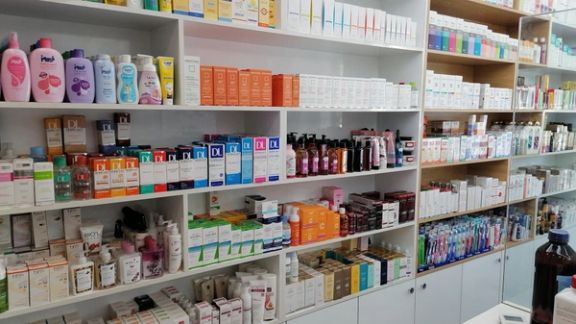
An Iranian MP has decried the government's neglect of the dire medicine shortages rocking the country.
Salman Es’haghi, Spokesperson of the Parliament’s Health Commission, highlighted the detrimental consequences, including an alarming rise in patient mortality rates.
He asserted that “despite the critical shortages, the Central Bank has refused to allocate the necessary currency for drugs,” placing domestic pharmaceutical producers in a challenging situation regarding pricing and currency allocation.
The parliament had approved the government's decision to discontinue an annual subsidy of $9-14 billion for essential food and medicines in March last year, despite concerns about heightened inflation and hardships.
The subsequent shortages have severely affected Iran's pharmaceutical industry, which heavily relies on government funding for importing raw materials.
Shortages of imported ingredients have disrupted medicine production, leaving approximately 200 types of common medicines and hospital drugs scarce or unavailable, according to local media reports.
Es’haghi underscored that repeated warnings about the drug crisis have been issued to the government by the health commission. Nevertheless, the government's lack of attention has exacerbated the situation.
In the previous Iranian year, the medicine crisis intensified, driving people to the black market for smuggled medicines due to soaring prices and unavailability of many essential items.
While Iranian officials often attribute medicine shortages to United States sanctions, Washington maintains that humanitarian aid is exempt from sanctions. Iran annually imports over $1.5 billion worth of medicines, including substantial quantities from Europe, China, and India.
There are also speculations that the Iranian government may exploit the psychological effects of these shortages to influence foreign perceptions and further exhaust a populace already fatigued by months of revolutionary fervor.
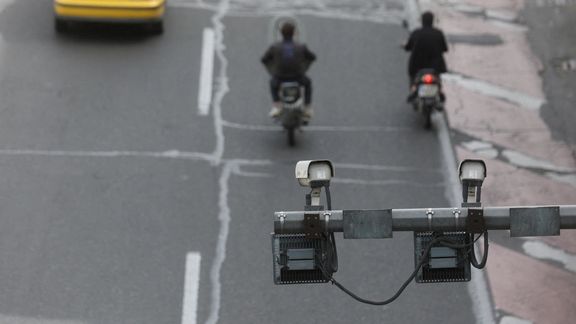
The scandal surrounding the German corporation Bosch’s delivery of surveillance technology to Iran has expanded to include Denmark, Sweden, the Netherlands and China.
Germany’s government and the country’s Bosch corporation are facing heavy criticism after Iran International reported on Monday that the engineering giant Bosch sold surveillance equipment to Iran. Germany’s ARD first revealed the alleged Bosch impropriety.
The United States sanctioned the Chinese company Tiandy last December for supplying video surveillance equipment to Iran and in January the European Union imposed sanctions on a firm that represents Tiandy in Iran.
Iranian activists told the German news outlet that the Danish security company Milestone Systems delivered video analysis software to Iran. Milestone told the outlet that it sold its software to Iran until 2019. The German news organization said Milestone Systems provided the video management software XProtect, an open platform that can be used for various purposes, to Iran.
The Danish company’s website states that XProtect can also be used to compare faces. ARD wrote “Milestone’s software can be combined with surveillance cameras from different manufacturers -- including cameras from Bosch.”
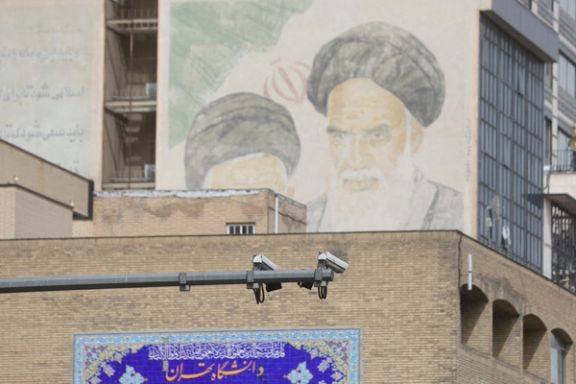
According to Iranian activists, the clerical regime also uses cameras from Sweden and the Netherlands. The companies from Sweden and Holland were not named.
Iran International has learned that Germany’s foreign ministry is referring press queries to Bosch. According to a Bosch statement to ARD, the engineering company sold 8,000 security cameras between 2016 and 2018 to Iran. However, Bosch claims its cameras cannot be used for fully automatic facial recognition.
Germany’s foreign ministry remains mum on the controversial sale of Bosch security cameras to Iran’s regime that can be used to track protesters and women who defy the mandatory hijab.
According to sources, Germany’s foreign ministry is punting media questions to government website information about its export sanctions imposed on Iran and to information about German trade with Iran’s regime being at a historic law.
It is unclear why Germany’s export control agency green-lighted the Bosch sale of mass surveillance technology to Iran’s regime.
Iran International reached out to numerous Bosch spokespeople, including its communication head, Christof Ehrhart, and Natalie Kuzhim, who is responsible for the Middle East. Bosch refused to answer a detailed Iran International press query about the corporation’s alleged misconduct.
Iran International learned that Germany’s foreign ministry has pointed to a diplomatic statement on X, formerly known as Twitter, about Iran’s new crackdown on women.
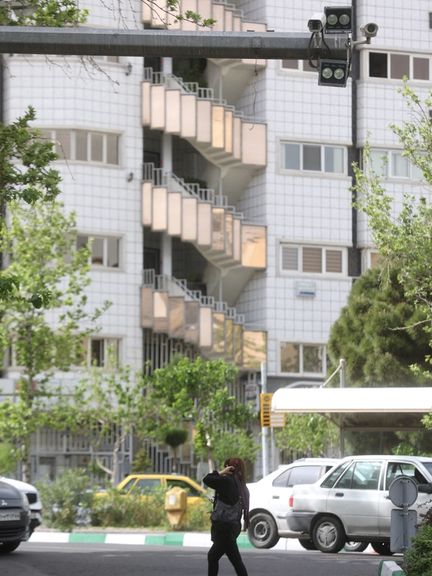
Tobias Tunkel, Director of Middle East and North Africa for the German foreign ministry,wrote on August 1 on X: “Iran’s new so-called ‘hijab-and-chastity’ legal draft effectively aims to ban unveiled women from public life. If passed into law, it would further exacerbate the systemic oppression against women and girls in Iran. #WomensRightsAreHumanRights.”
Tunkel’s message on X received a mere 3 retweets and 5 likes as of Monday evening. Germany’s foreign minister, Annalena Baerbock, claims she is promoting a “feminist foreign policy.” Baerbock has refused to classify Iran’s Islamic Revolutionary Guard Corps (IRGC) as a foreign terrorist organization.